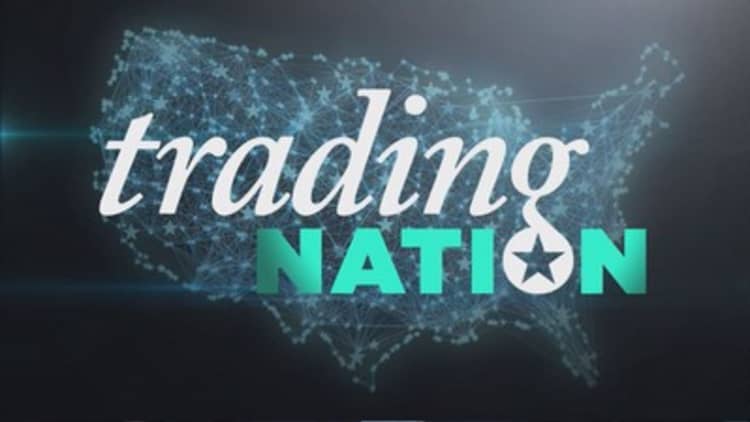
To investors who fret about historically high market valuations, Jonathan Golub has a simple message: You're missing the point.
"When people say 'Oh, well stocks look cheap or expensive compared to history,' it doesn't mean anything," said Golub, chief U.S. market strategist at RBC Capital Markets.
The fact of the matter is, the value of stocks has to be compared to other options the investors may choose from. The less one can make in bonds, the less one needs to make in stocks—or, stated differently, the less money that companies need to earn and distribute in order to attract the same amount of investment.
"It's so simple: The value of a stock are its discounted cash flows. And when the discount rate [the rate at which future cash flows must be discounted] falls, the value of a stock goes up," Golub said Thursday in a "Trading Nation" interview.
"When you have a 10-year bond yield at 2.2 percent, you should have a valuation of stocks with a P/E over 20," he said.
The math here is strikingly simple. Golub values the market simply by dividing S&P 500 earnings by the average yield on Baa-rated corporate bonds—currently around 4.7 percent. By dividing 1 by 0.047, Golub arrives at his "justified" earnings multiplier of 21.
Golub's point is that rather than being rich, the current P/E ratio of 17 is actually below the 20+ ratio at which the S&P deserves to be trading.
"Stocks on that metric look like a screaming buy," he concludes.
On the other hand, Golub's measure might be a bit too simplistic. Andrew Burkly, head of institutional portfolio strategy at Oppenheimer, calls the approach "a good start," but adds that a risk premium has to be added to the Baa-rated bond yield to arrive at a more sensible discount rate.
Though there is some credit risk assumed in Baa yields, "the fact is, you'd still rather own a Baa-rated bond than a stock if they're going to return the same amount," which tells Burkly that the yield on its own makes for an inappropriate discount rate.
Want to be part of the Trading Nation? If you'd like to call into our live Monday show, email your name, number and question to TradingNation@cnbc.com.






